Analytical chemistry methods and Services
Analytical chemistry methods refer to techniques used for the detection, identification, characterization, and quantification of chemical compounds. These methods are commonly used in biology for research, development, and quality control of pharmaceutical products.
The methods used to allow quantitative or qualitative, more or less invasive and destructive analysis of samples, and typically require sophisticated instrumentation.
The properties analyzed are mass, chemical composition, molecular structure, radioactivity, interactions between molecules, etc. Applications range from the identification of molecules present in a sample to the validation of production methods.
For biotechnology R&D and drug development, analytical methods consist of a wide range of technologies that have been adapted to observe, measure, and quantify the complexity of life. These methods include mass spectrometry, HPLC chromatography, and nuclear magnetic resonance.
Analytical methods are used throughout the R&D process: from the identification of biomarkers to the quality control of a production or an analysis during a clinical study.
Finding the right laboratory with the set of competencies required for analytical method development can be difficult.
Labtoo can look for any type of analytical services, for the development of new drugs and the development of diagnostics assays.
Select your Spectrometry Service
Spectrometry refers to the instrumentation and measurements for spectrometric studies. An important technique of spectrometry is mass spectrometry, which allows the detection and identification of molecules according to their mass, particularly used in proteomics. Atomic absorption can also be used for impurities analysis.
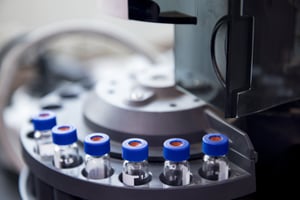
Select your Isotopic analysis and NMR Service
L’analyse isotopique est basée sur la mesure de la masse des molécules et permet l’obtention d’un spectre pouvant entrainer l’identification des molécules présentes dans un échantillon. La RMN est la technique la plus utilisée qui permet l’étude de la structure de molécules, l'interaction de différentes molécules ainsi que la cinétique et la dynamique de ces interactions.
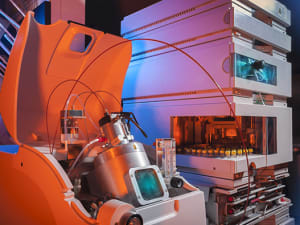
Select your FTIR and Spectroscopy Service
Spectroscopy refers to the study of electromagnetic radiation absorbed, emitted or scattered by matter. Spectroscopic techniques include Fourier spectroscopy, which allows, among other things, the analysis of the secondary structure of a protein or the measurement of the stability of the secondary structure of a molecule.
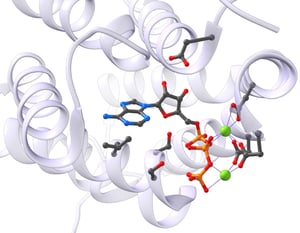
Select your HPLC and Chromatography Service
Chromatography is a method of separating the components of a mixture according to different characteristics such as the size of the compound or its affinity for a ligand. It can be more or less resolutive.
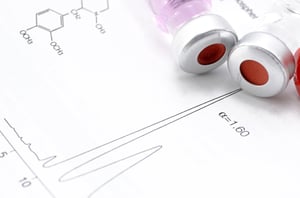
Select your Separative Method
Separative methods allow the separation of various types of compounds present in a sample according to, for example, their mass, charge or density. These include electrophoresis and centrifugation.
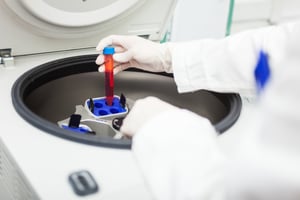
Select your calorimetry Service
Calorimetric studies are based on thermodynamic measurements that analyze temperature variations during compound transformations. Differential scanning calorimetry, for example, is used to study the reaction of polymers when they are heated.
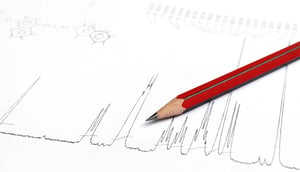
Select your Surface Dynamics Service
Surface Plasma Resonance (SPR) is a very powerful technique that allows the characterization of interactions between two molecules. The molecules studied can be "small molecules", and also peptides, antibodies or lipids.
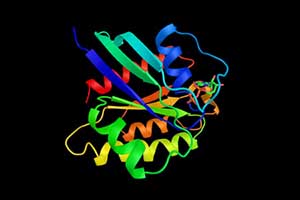
Select your Biosensor Service
A biosensor is an analytical instrument used for the detection of analytes that combines a biological component, such as an antibody or nucleic acid, and a physicochemical detector.
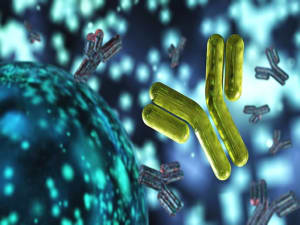
Select your Environmental Testing Service
The analysis of environmental samples allows the detection of many compounds such as pesticides, volatile organic compounds, or aromatic hydrocarbons. It is also possible to study the effectiveness of these compounds through different tests.
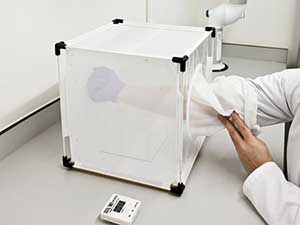
Select your Physico-chemical Analysis Service
Physicochemical measurements allow the characterization of a sample. Depending on the molecules of interest, different methods can be implemented.

Our team will handle your R&D service management from the beginning to the end
Perform a feasibility study by looking for existing expertise available within the network of partners
Set up a study protocol, financial quotation and preparing contracts with lab partners
Implement the study plan into a schedule, collect all needed materials and reagents and execute the service
Do you need more information regarding Analytical testing?
From classical analytical chemistry
Analytical methods have been very important since the early days of chemistry, set up to determine which elements were present in a sample. This period saw the development of systematic elemental analysis, including the use of rudimentary spectrometric techniques that have been continuously improved during the 20th century.
Separation sciences also emerged very rapidly from the beginning of modern chemistry, until they experienced a considerable boom with the arrival of complex instruments.
Today, some classical methods are still used in laboratories. This is the case for qualitative analyses, such as: chemical tests, such as the Kastle-Meyer test for the detection of blood; and flame tests, to detect the presence of certain metal ions or other elements.
To the most advanced technologies
Analytical methods have been improved considerably through the development of technological instruments.
Advances in mass spectrometry
Mass spectrometry (MS) applied to proteomics has literally exploded since the 2000s. The basic MS methods are matrix-assisted laser desorption/ionization time-of-flight MS (MALDI-ToF MS) and chromatography and electrospray ionization coupled to MS (LC-ESI-MS).
The most mature parameters are sensitivity, resolution, and sample reading speed. Today, a high-throughput approach is made possible, making the analysis of complex samples more affordable.
Hybrid triple quadrupole (TQ) MS has made considerable progress in quantitative MS, which however has technical limitations.
The application of MS to the study of complexes such as antibody/antigen complexes is made possible by a method called hybrid LBA/LC-MS or immunoassay spectrometry. However, this method is subject to further development as the analytical variability is too high to be used in production batch validation.
Technology Couplings
While one of the most successful technology couplings, chromatography coupled with mass spectrometry, as described above, other couplings increase the capabilities of the technologies tenfold.
This is the case in particular with capillary electrophoresis, which, when it is preparatory, can be coupled with MALDI-ToF analysis for the identification of separated species. Capillary electrophoresis is a robust quantitative method, which allows a clean compound separation pattern, but needs to be calibrated by the use of standards. When coupled with mass spectrometry, CE dramatically increases its analytical capabilities, especially in the characterization of clusters obtained during bioproduction.
The rise of metabolomics
Metabolomics is the large-scale study of small molecules, commonly called metabolites, within cells, biofluids, tissues or organisms. Collectively, these small molecules and their interactions within a biological system are known as the metabolome.
Metabolites are products of the metabolism of cells and organisms, which can be influenced by genetic and environmental factors.
Mass spectrometry (MS) and nuclear magnetic resonance (NMR) have become the most common techniques in metabolomics studies, and each has its own advantages and limitations. NMR spectroscopy is quantitative and does not require additional sample preparation steps such as separation or derivatization. NMR spectroscopy has limitations in terms of sensitivity. MS-based metabolomics is an excellent approach that can provide a combined platform of sensitivity and selectivity for metabolomics research.
Analytical methods: developmental or routine?
Analytical chemistry at the service of biological research
Routine analysis
Numerous analysis protocols exist, and the required reagents and instruments are well defined and listed. These standard methods can be certified for certain uses by organizations such as AOAC International or ISO.
Analysis requiring further development
Protocols that have never been applied in special cases, such as the analysis of new biomarkers or the modification of standard conditions, may require method development. For applications in drug development, a method must be robust and reproducible in order to give a clear and unequivocal answer. To be in line with the requirements of Good Manufacturing Practice (GMP), the method must be validated according to a documented process.
Types of providers
Academic structures
Academic platforms are solicited for the analytical study of molecules requiring the development or adaptation of a method. As some analytical instruments are very expensive, only academic structures are able to finance them. The service is provided by a technological platform available from external structures such as research institutes and companies.
Technology service companies
Analytical chemistry service companies offer services tailored to the demands of private or public customers. They can be highly specialized (on a technology or a type of application), or generalist, offering for example a panel of validated and certified methods.
Method validation structures
Drug development requires the validation of production methods - who can use analytical chemistry tools for these purposes. Some organizations propose to validate methods used in the production of pre-clinical and clinical batches of drugs.

